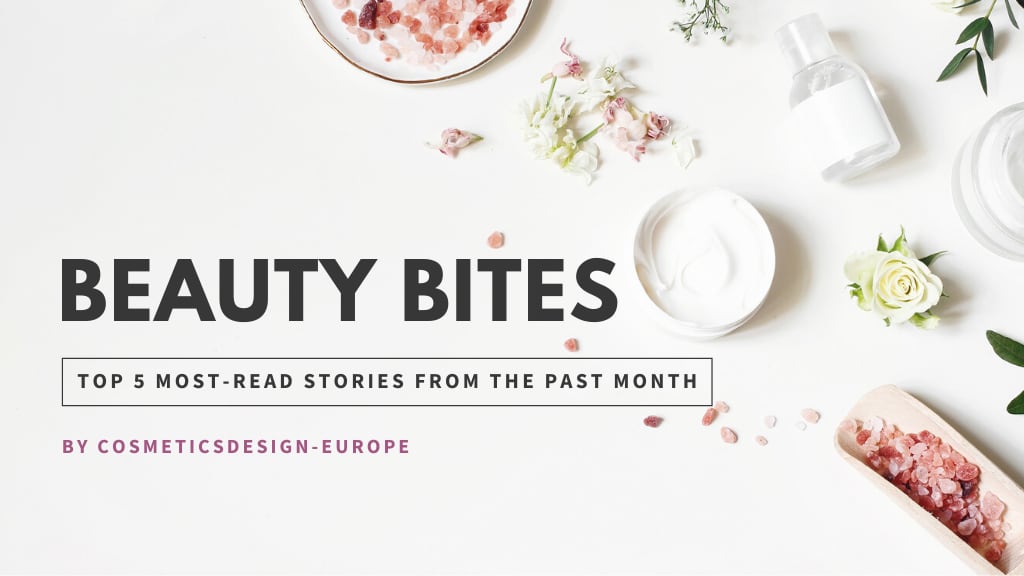Writing in Sustainable Production and Consumption, researchers from Brazil investigated the drivers, barriers and good sustainable practices existing amongst Brazilian cosmetic companies. The study considered all of this from the perspective of Corporate Social Responsibility (CSR) and how efforts related to product life cycle management and Design for Sustainability (DfS) principles. The qualitative research involved eight small and large Brazilian cosmetic companies.
Environment and sourcing focus, less on social impact and consumer use phase
Findings showed that whilst there were many sustainable actions being taken by these beauty companies, “greater emphasis” was being placed on environmental issues, product design and sourcing – largely around use of natural, vegetable or organic raw materials and biodegradable or recyclable packaging. Less effort was being directed towards social aspects and other phases of the beauty product life cycle such as distribution, consumer use and manufacturing.
“Companies are aware of their responsible commitments and are mobilised towards sustainable production but do not yet have initiatives that induce sustainable consumption. Although several sustainable initiatives have been identified, there is plenty of scope for improvement,” the researchers wrote.
“…We infer from the analysis that companies focus most on environmental issues at the design and sourcing stages. Important areas for action appear to be how to replace existing packaging with alternative materials and raise awareness among companies and customers about product use, proper disposal, reuse, or recycling. Additionally, there are opportunities to strengthen initiatives regarding the manufacturing and distribution stages and consider social aspects in the different stages of the life cycle.”
The “main barrier” to fulfilling sustainability ideals identified by all companies, irrespective of size, was the high cost of raw materials and environmentally friendly packaging, according to the study. Similarly, time spent developing new products was also cited a hurdle.
“Despite the challenges, companies are seeking alternatives to overcome them. Particularly in large companies, specific sectors are responsible for ensuring the financial viability of product development,” the researchers wrote.
Driving better beauty consumption – a case study for the global industry
The study authors said that whilst this research specifically focused on Brazilian beauty companies, it provided important insight for the wider global sector given Brazil represented the fourth-largest beauty market in the world and exported products to 174 countries “demonstrating its global representativeness in the industry”. Findings were also especially relevant for other emerging countries, the researchers said.
The country’s abundant natural resources and biodiversity in need or protecting also made it a “relevant” market to be studied for CSR and DfS actions, they said.
The conclusion of the research indicated that Brazilian beauty companies demonstrated “advances concerning CSR” but had “not yet reached the necessary maturity to consider in an integrated way the dimensions of sustainability of all phases of the life cycle in product design, as advocated by DfS”.
Company actions, the researchers said, lacked a “holistic vision” with many decisions taken in early design stages aligning more closely with the Design for Environment (DfE) concept.
“We infer that companies are carrying out initiatives mainly related to sustainable production, with some efforts directed towards sustainable consumption. However, the data show that companies have not yet reached the necessary maturity to meet the DfS principles.”
“…Organisations need to rethink processes completely and holistically. Although it develops actions to encompass sustainability issues, the cosmetics industry does not do so comprehensively, prioritising the environmental aspect to the detriment of other dimensions contemplated by the CSR literature. This observation becomes evident when we relate the findings to the phases of the life cycle,” the researchers said.
Moving forward, they said change could happen with the input of government-led policies that aimed to regulate, encourage and promote educational campaigns, ultimately sparking “greater public receptivity”. Change would also be spurred by wider industry investment in “innovation initiatives and innovation ecosystems”.
Consumer engagement key to beauty CSR evolution
Speaking to CosmeticsDesign-Europe, corresponding author Camila Kolling, PhD student in Production Engineering at Brazil’s Federal University of Rio Grande do Sul, reiterated how important the onboarding of consumers would be – sentiments that echoed a recent interview with LATAM-based Natura &Co’s VP of sustainability and group affairs.
“For example, customers must be willing to pay more, if necessary, for products developed with natural ingredients and sustainable processes. Likewise, consumers play a crucial role at the end of the life cycle. When the product is finished, it is up to them to dispose of it properly or take the packaging to the company,” Kolling said.
“It is also consumer who can act as stimulators for companies to develop more sustainable actions,” she added.
The study suggested that collaboration with external institutes, such as universities, would prove important moving forward for the beauty industry – adding an element that could bring “resources, skills and knowledge” that companies may not necessarily already have, Kolling said.
“Partnerships can help leverage innovation and design solutions for different phases of the product life cycle,” she said.
Late last year, beauty majors Henkel, L’Oréal, LVMH, Natura & Co and Unilever publicly joined forces as a consortium to call for a brand-agnostic environmental impact system that they said would make industry more transparent and comparable with sustainability actions and claims. Developing the system, they said, would be achieved with the input of external expertise from independent parties, including academics, scientists, NGOs and consultancies.
Source: Sustainable Production and Consumption
Published online ahead of print, doi: 10.1016/j.spc.2021.12.002
Title: “Performance of the cosmetics industry from the perspective of Corporate Social Responsibility and Design for Sustainability”
Authors: C. Kolling, JLD. Ribeiro and J. Fleith de Medeiros




